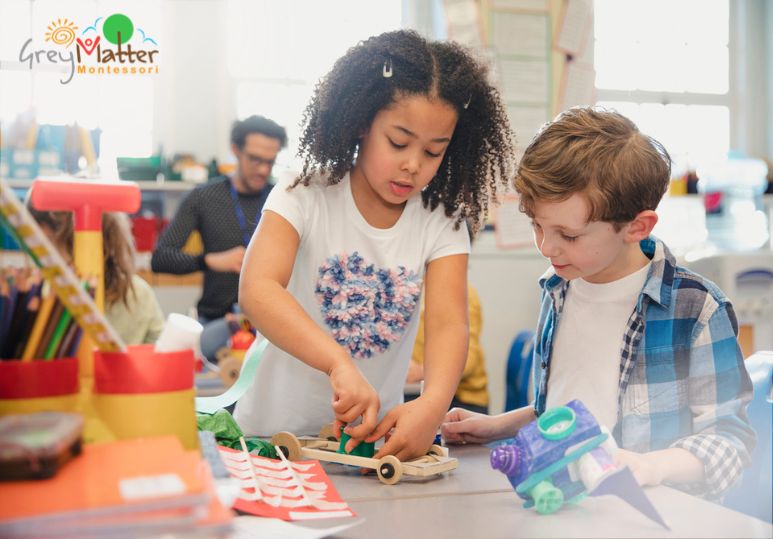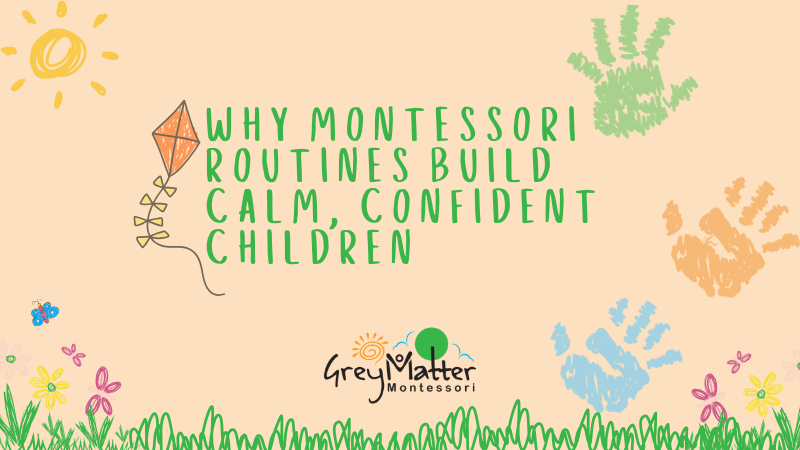At the heart of Montessori education is a simple yet profound belief: children learn best when they are allowed to explore their interests and engage with their environment in meaningful ways. This method, developed by Dr. Maria Montessori, emphasizes self-directed learning, mixed-age classrooms, and hands-on discovery. Beyond the surface, however, lies a deeper goal – to equip students with the critical skills of critical thinking, collaboration, creativity, and communication. These Four Cs are not just educational buzzwords but essential tools for leadership in the 21st century.
As the world becomes increasingly interconnected and complex, the traditional model of education, which often prioritizes rote memorization and individual achievement, falls short in preparing students for the future. Montessori education stands out by fostering a learning environment where the Four Cs are not only encouraged but are integral to the educational process. This approach prepares students not just to be participants in the world but to be innovators and leaders who can shape the future.
Critical Thinking
Critical thinking in Montessori education begins with encouraging curiosity and questioning. Students are taught to not take information at face value but to delve deeper, ask questions, and explore various outcomes. This foundation allows students to tackle complex problems with a keen analytical eye, assessing situations from multiple angles and developing thoughtful, informed solutions. Leaders with strong critical thinking skills can navigate the challenges of the modern world with confidence, making decisions that are not just reactive but strategic and forward-thinking.
Collaboration
The mixed-age classrooms and group projects inherent in Montessori education promote collaboration from an early age. Students learn to work with others, valuing different perspectives and leveraging individual strengths to achieve a common goal. This environment mirrors the modern workplace, where teamwork and collaboration are crucial for innovation. Leaders who can collaborate effectively are able to bring out the best in their teams, fostering a culture of inclusivity and mutual respect.
Creativity
Creativity in Montessori education is not limited to the arts; it is a way of thinking. Students are encouraged to use their imagination not just as a form of expression but as a tool for problem-solving. This emphasis on creative thinking prepares students to approach challenges with a mindset that values innovation and out-of-the-box thinking. Leaders with a creative approach can inspire change and envision solutions that others might overlook, driving progress in their fields.
Communication
Effective communication is a cornerstone of Montessori education. From a young age, students learn to express their thoughts clearly and listen actively. This two-way approach to communication is critical in leadership, where the ability to convey ideas succinctly and empathetically can make the difference between a vision that inspires and one that falls flat. Leaders who are strong communicators can bridge gaps, build alliances, and guide their teams with clarity and purpose.
The Four Cs of Montessori education - Critical Thinking, Collaboration, Creativity, and Communication - are more than educational principles; they are the building blocks of leadership in the 21st century. By focusing on these skills, Montessori education prepares students not just for academic success but for a lifetime of leadership. The challenges of the modern world require leaders who are innovative, collaborative, creative, and communicative. Montessori education, with its emphasis on these Four Cs, is uniquely positioned to foster such leaders.
As we look to the future, the need for innovative education that prepares students for the complexities of the global landscape has never been clearer. Montessori education offers a proven model that not only meets this need but exceeds it, proving that the right educational approach can indeed shape the leaders of tomorrow. In embracing the Montessori method, we are not just innovating education; we are investing in a future led by individuals equipped to navigate change, drive progress, and lead with integrity and insight.
Written on behalf of Grey Matter Montessori.
FAQs
Q: What are the Four Cs of Montessori Education?
A: They are Critical Thinking, Collaboration, Creativity, and Communication.
Q: How does Montessori education prepare students for leadership?
A: By emphasizing the Four Cs, it nurtures skills essential for innovation, teamwork, problem-solving, and effective communication.
Q: How does Montessori education promote critical thinking?
A: It encourages students to question, explore outcomes, and develop informed solutions, enhancing analytical skills.






